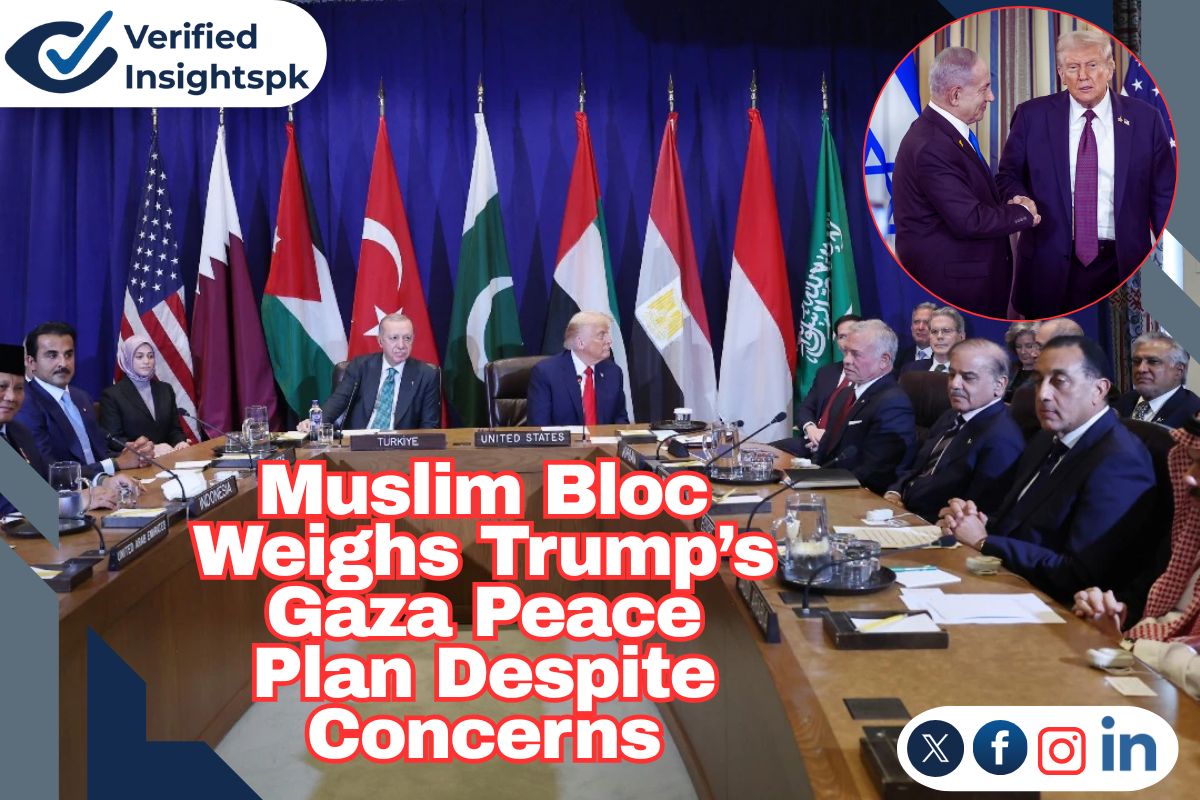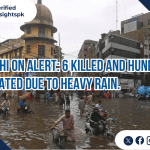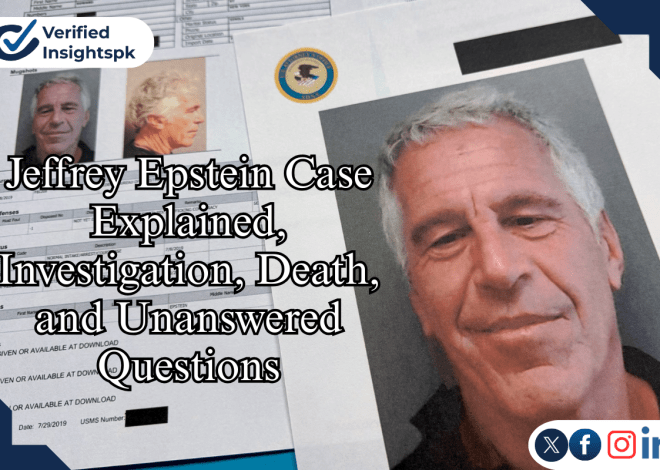
Muslim Bloc Weighs Trump’s Gaza Peace Plan Despite Concerns
A new trump Gaza peace plan announced by US President Donald Trump has raised many questions, but also created hope for an end to the war. The plan has been welcomed in words by eight Muslim countries, but behind the scenes, serious doubts remain.
These countries —Pakistan, Qatar, Turkey, Egypt, Saudi Arabia, Jordan, the UAE, and Indonesia — are under pressure to support the trump Gaza peace plan, even though it differs from what they had previously agreed upon.
How the Trump Gaza Peace Plan Changed
At first, Muslim leaders believed Trump’s plan would stop the war and protect Palestinians. But the version announced by the White House was different:
- Prisoner release reduced: Instead of hundreds of Palestinian prisoners, only 250 would be released.
- Aid trucks cut: Earlier drafts promised 600 aid trucks daily. The new one gives no clear number.
- New leadership model: Gaza would be run by a “Board of Peace” led by Trump and former UK Prime Minister Tony Blair, leaving little role for international consultation.
- Phased Israeli withdrawal: Israeli troops would not leave immediately. No fixed deadlines were given.
These changes have caused unease in Muslim capitals.
Key Concessions Seen as Positive
Still, some points are being viewed as progress:
- Israel agreed not to annex the West Bank.
- Palestinians will not be expelled from Gaza.
- Egypt anticipates substantial economic benefits from reconstruction projects, including debris removal and infrastructure rehabilitation.
For Egypt, this also means relief from the fear of a mass influx of Palestinians into Sinai.
The Controversial Stabilization Force
One of the most debated parts of Trump’s plan is the creation of an International Stabilization Force (ISF).
- It was initially meant to train Palestinian police.
- In the new draft, it has expanded powers that could increase Israeli control.
- The “security zone” around Gaza raises fears of a permanent Israeli presence.
Trump asked the eight Muslim countries to send troops for this force. But doubts remain:
- Who will lead the force?
- What are its rules of engagement?
- Without UN approval, will it be legal internationally?
Turkey, Jordan, and Egypt have asked for UN Security Council backing. But the US and Israel rejected this.
Hamas Reaction and Demands
Hamas has not entirely accepted the plan. Its concerns include:
- The disarmament clause demands that Hamas give up weapons.
- The expulsion of Hamas cadres from Gaza.
- Lack of international guarantees for a complete Israeli withdrawal.
- Fears of assassinations against its leaders inside or outside Gaza.
Hamas leaders stated that they require a few days to provide their official response.
Pressure on Hamas to Accept
Regional powers, especially Turkey, Egypt, and Qatar, are trying to convince Hamas to accept the deal.
- Turkish Foreign Minister Hakan Fidan said Turkey would persuade Palestinians while the US pressures Israel.
- Leaders told Hamas this could be the “last chance” to stop the war and ease the suffering of ordinary people.
Why the Muslim Bloc May Still Support the Plan
Even though they are not satisfied, many Muslim governments see no other choice but to support Trump’s plan. The war has already caused massive destruction, suffering, and displacement.
- Egypt seeks peace to halt the refugee threat and bolster its economy.
- Turkey wants influence in Gaza but faces Israeli opposition.
- Qatar and Pakistan are speaking carefully, not openly rejecting the plan.
The joint statement from all eight countries welcomed the plan, despite their private concerns remaining.
Verified Insights PK Remarks
At Verified Insights PK, we believe this plan illustrates the complexity of achieving peace in Gaza. On one side, there is real pressure to stop the war and save lives. On the other hand, the terms of the deal raise serious questions about fairness, independence, and the future of Palestinian rights.
The involvement of Muslim countries is vital, but without guarantees of justice and dignity for Palestinians, peace will remain fragile. A sustainable solution can only come when all parties, especially the Palestinians themselves, are given a true voice in shaping their future.
Conclusion
Trump’s Gaza peace plan has opened a new chapter. Muslim countries are torn between their doubts and the urgent need for peace. Hamas is under pressure but is seeking changes before it agrees to them.
Whether this plan brings real peace or simply reshapes the conflict will depend on what happens in the coming weeks.
For now, one thing is clear: the suffering of Palestinians must end, and any plan that claims to bring peace must keep their rights at the center.










